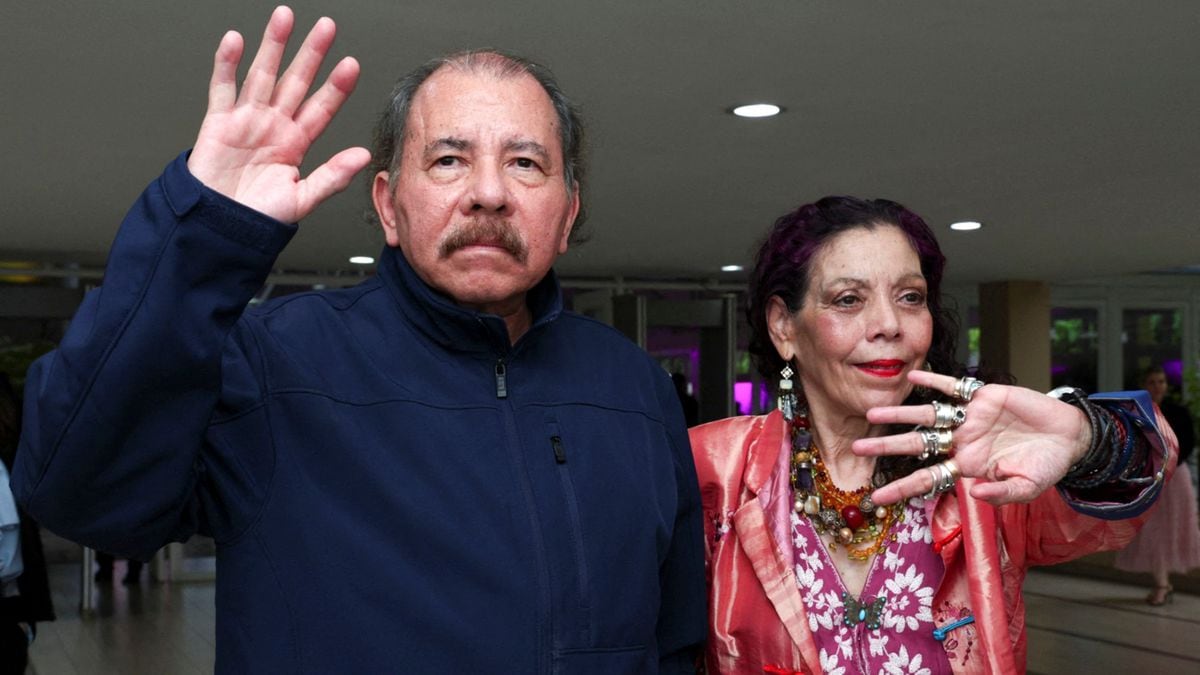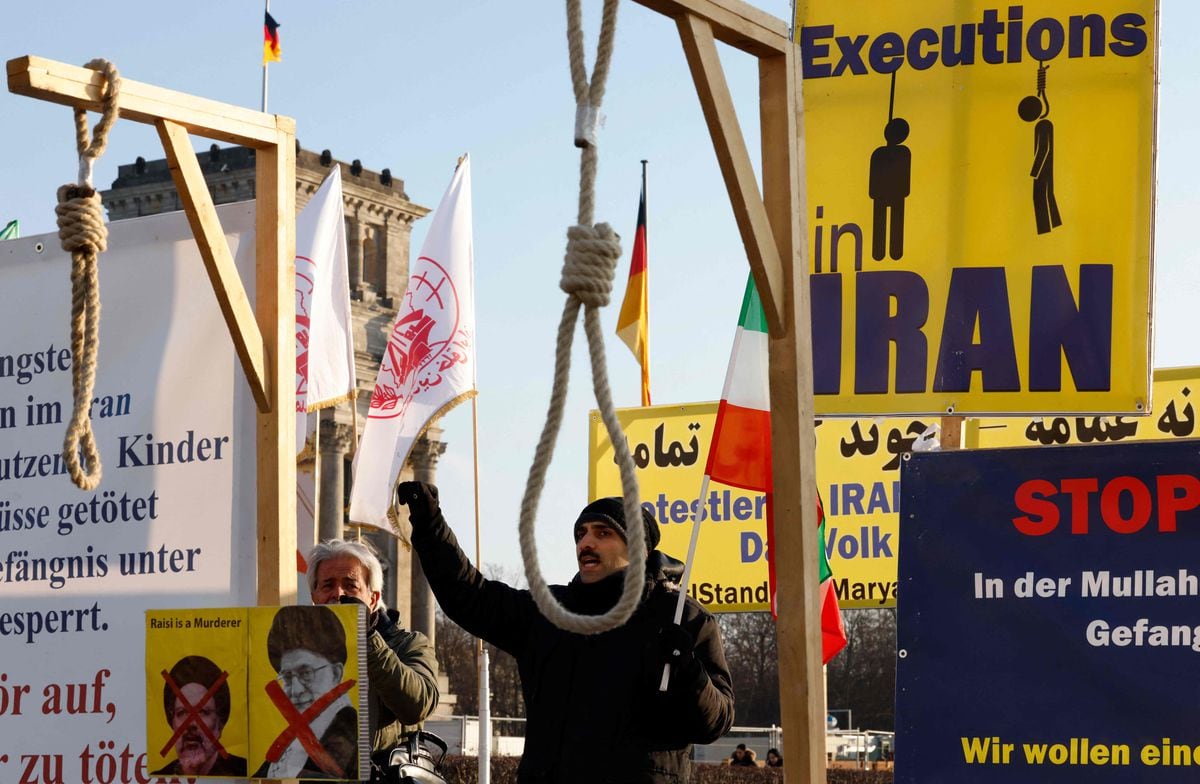Two volunteers from Proactiva Open Arms carry out rapid tests in a residence in the province of Barcelona, together with a nurse from the center, last April.Albert Garcia
It is a diagnosis of the disaster, an analysis of the horror experienced in many nursing homes during the first wave of the pandemic in Catalonia and in Madrid, two of the communities hardest hit by covid last spring.
In a report published this Wednesday, Amnesty International finds that five human rights of those who lived in these institutions were violated: the right to health, life and non-discrimination of the elderly, the right to private and family life, and have a dignified death.
In the document, Amnesty concludes that the measures adopted were inefficient, late, and did not serve to protect a particularly vulnerable group.
That there was lack of coordination between the authorities.
That the staff had no protection or resources and there were no diagnostic tests, so it was impossible to properly sectorize the centers to separate the older infected from those who were not, and the workers themselves spread the virus.
That many older people died alone.
That the administration of palliative care was inadequate.
That they were rejected in the hospitals and health care was not reinforced in the centers themselves.
That they were, in short, "abandoned to their fate", the expression that gives the report its title.
The Government estimates 20,268 deaths from covid in social services residences during the first wave
One in four deaths from covid reported since the end of August comes from residences
For this reason, and given the “very worrying” current situation, with the virus active again in many centers, Amnesty calls on Madrid and Catalonia to change the discriminatory provisions that restricted the referral of elderly to the hospital, the wording of which ensures that it has not been modified (Although now there are no problems to transfer the elderly who require it).
And it calls on the Government to carry out an independent investigation and to regulate the residential model by law.
Criticizes that the staff has not been reinforced sufficiently and that the visits continue to be not guaranteed.
The work took place between July and November, and the organization interviewed 97 people, 40 of them relatives of residents.
It focuses on March and early April.
Amnesty analyzed legislation and protocols, international recommendations, the available data and met with authorities at the national and regional levels.
He describes the situation in the residences in these two communities as “heartbreaking”.
In Madrid, as of March 8, 5,828 people died from covid or compatible symptoms in social services residences (they also include disability residences), which represents 43.5% of the total deaths in the community, according to the report.
In Catalonia, until November 15 there were 7,045 deaths, 46.9% of the deaths in the autonomous region.
The organization fears that there is no consolidated data on the number of deaths and that there is not even a reliable statistic on the population in nursing homes, as well as that there was no mechanism for coordinating or supervising measures in residences during the state of alarm .
Austerity measures
"Amnesty International has verified how the measures adopted by the regional and central authorities were late and insufficient," the report notes, which also indicates that when decisions were made, "they were not accompanied by sufficient resources."
The organization considers that “the situation of helplessness experienced by the elderly” cannot be separated from the “impact of the austerity measures”.
From 2009 to 2018, GDP grew by 8.6%, while health spending fell by 11.21%, according to Amnesty.
"This process of weakening the health system explains to a great extent why this situation of non-hospital referral of elderly people has been reached in the critical weeks of the pandemic."
This is one of the points on which the research places the greatest emphasis.
"There were residents in need of medical attention who were not given the opportunity to treat possible covid-19 or other pathologies, neither in the residence nor in a hospital", it is pointed out.
"The practical decision not to refer was applied en bloc, without carrying out individualized assessments," is added in the document, which lists the protocols that endorsed these restrictions in Madrid and Catalonia.
Criteria such as age, degree of disability or state of health were met, Amnesty maintains.
Testimonies of personnel from residences, emergencies and hospitals corroborate this.
"There were lives that could be saved, but it was not done," said a doctor from a Catalan primary care center.
“A health emergency is not an excuse for not taking adequate care of the elderly.
The residences are not parking lots, ”Esteban Beltrán, director of Amnesty in Spain, criticized in a statement.
After restricting hospital admissions, the authorities announced what was called “medicalization of residences”, but this did not come: “In addition to not being materially viable to transform a residence into a hospital, this increased endowment of resources (material and personal) it was never carried out ”.
Jesús Izquierdo died in March at the age of 88 in a residence in Catalonia with symptoms of covid without a single doctor assessing him in person.
He only received telephone attention.
His daughter assures that a nurse told her that "since they had to prioritize, [the doctor who was going to travel to the center] was not going to visit him, since there were other residents who were worse off."
But the lack of medical attention did not only affect those who suffered from covid.
This situation produced, as documented by the organization, cases of "malnutrition, dehydration and rapid deterioration and emotional impact on the elderly."
The organization warns that "most of the residences in Madrid and Catalonia were not and are not adequately staffed or equipped with medical equipment."
The problems then worsened as the workers became infected.
The organization has residences with more than 50% of the employees on leave.
The document also analyzes "the de facto confinement" carried out "without legal supervision" of the elderly "in their rooms for long periods."
He criticizes the absolute prohibition of visits, something that, together with the suspension of the center's activities, contributed to the worst of the pandemic "to the loneliness of the residents, to their rapid deterioration, violation of their right to a dignified death and to lack of transparency about what was happening ”.
More tests and review the inspection system
Now "there seem" to be problems with the availability of protective material and tests are being carried out, according to the report.
But if measures are not taken, the situations experienced in the first wave, such as the denial of health care or the restriction of visits in a "disproportionate" way, "could be repeated again," warns Amnesty.
For this reason, the organization asks that the protocols on hospital referral be reviewed.
They quote the director of Social Health Coordination in Madrid, who said: "In theory, it is still in force, although it is still not used because there is no context of crisis."
The NGO insists that situations of discrimination cannot be repeated.
In the short term, it calls for visits to be guaranteed, so that restrictions are based on individualized risk assessments, and asks the Government to promote an independent investigation to find out to what extent the access of the elderly to medical care was subject to undue restrictions (which requires an evaluation of the Executive and regional measures).
Request more frequent screenings from staff, residents, and visitors.
In the long term, it demands that data be collected on elderly people in residences and that the inspection system be reviewed.
It also requests that the Prosecutor's Office for the protection of people with disabilities and the elderly exercise its mandate, ensuring their rights and promoting, when appropriate, investigations.
Information about the coronavirus
- Here you can follow the last hour on the evolution of the pandemic
- Restrictions search engine: What can I do in my municipality?
- This is how the coronavirus curve evolves in the world
- Download the tracking application for Spain
- Guide to action against the disease

/cloudfront-eu-central-1.images.arcpublishing.com/prisa/CK3E46KWDJBRJCJDRFESYHLQNM.jpg)







